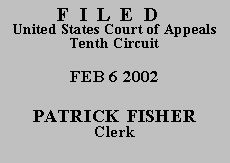

| UNITED STATES OF AMERICA,
v.
JANET LYNN WILHITE |
No. 01-6174
(D.C. No. CR-00-157-R) |
Defendant-Appellant Janet Lynn Wilhite challenges two aspects of her sentence for bank fraud, mail fraud, money laundering, and false statements to a federally insured financial institution. First, she argues that the district court erred by enhancing her sentence based on her obstruction of justice. Second, she argues that the district court erred by refusing to reduce her sentence based on her acceptance of responsibility. Neither argument has merit.
Wilhite offers three grounds in support of her position that the obstruction of justice enhancement was improper. First, she points out that the fraudulent invoices at issue were submitted to the Government by her attorney. However, the evidence establishes that Wilhite provided the invoices to her attorney, and that she misrepresented the validity of the invoices during an interview with the FBI after the invoices had been produced.
Second, Wilhite argues that the invoices were produced in response to a valid subpoena, and that "there was no claim made by Wilhite that these invoices were accurate." In light of the record, it is clear that the invoices were submitted in an attempt to mislead the Government, and Wilhite was at the center of this deception.
Finally, Wilhite argues that the Government failed to prove that she impeded the investigation by providing the false invoices. This argument also fails, as the Government offered testimony establishing that the production of the false invoices delayed the investigation by requiring further efforts by the Government to determine whether the invoices were, in fact, valid.
To a significant extent, the above analysis disposes of Wilhite's second argument that she was entitled to a sentence reduction for acceptance of responsibility. Wilhite contends that, to the extent there was no obstruction of justice, the acceptance of responsibility reduction would have been appropriate. As noted, the evidence was sufficient to support the district court's finding that Wilhite did, in fact, obstruct justice. Accordingly, Wilhite is not entitled to a reduction for accepting responsibility. See U.S.S.G. § 3E1.1, app. note 4 ("Conduct resulting in an [obstruction of justice enhancement] ordinarily indicates that the defendant has not accepted responsibility for his criminal conduct.").
For the above reasons, we AFFIRM the sentence imposed by the district court. The Government's Motion to Supplement Record is GRANTED.
ENTERED FOR THE COURT
David M. Ebel
Circuit Judge
*.After examining the briefs and appellate record, this panel has determined unanimously to grant the parties' request for a decision on the briefs without oral argument. See Fed. R. App. P. 34(f) and 10th Cir. R. 34.1(G). The case is therefore ordered submitted without oral argument. This order and judgment is not binding precedent, except under the doctrines of law of the case, res judicata, and collateral estoppel. The court generally disfavors the citation of orders and judgments; nevertheless, an order and judgment may be cited under the terms and conditions of 10th Cir. R. 36.3.